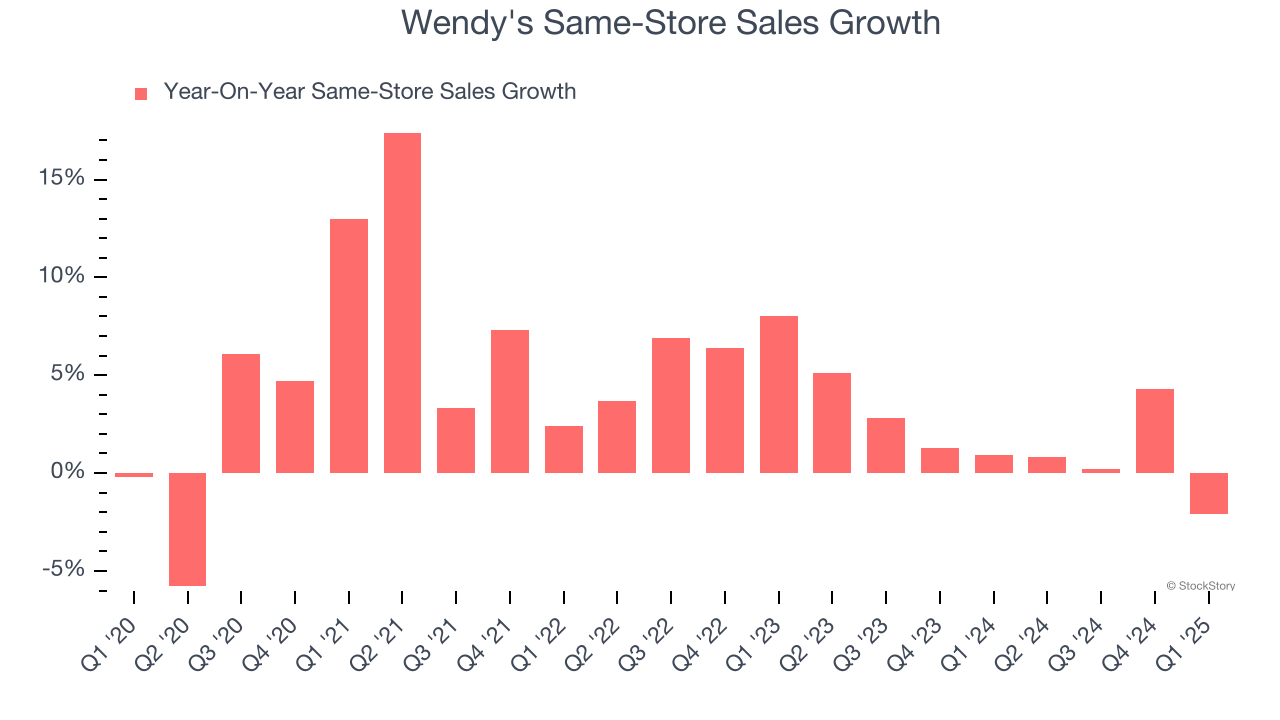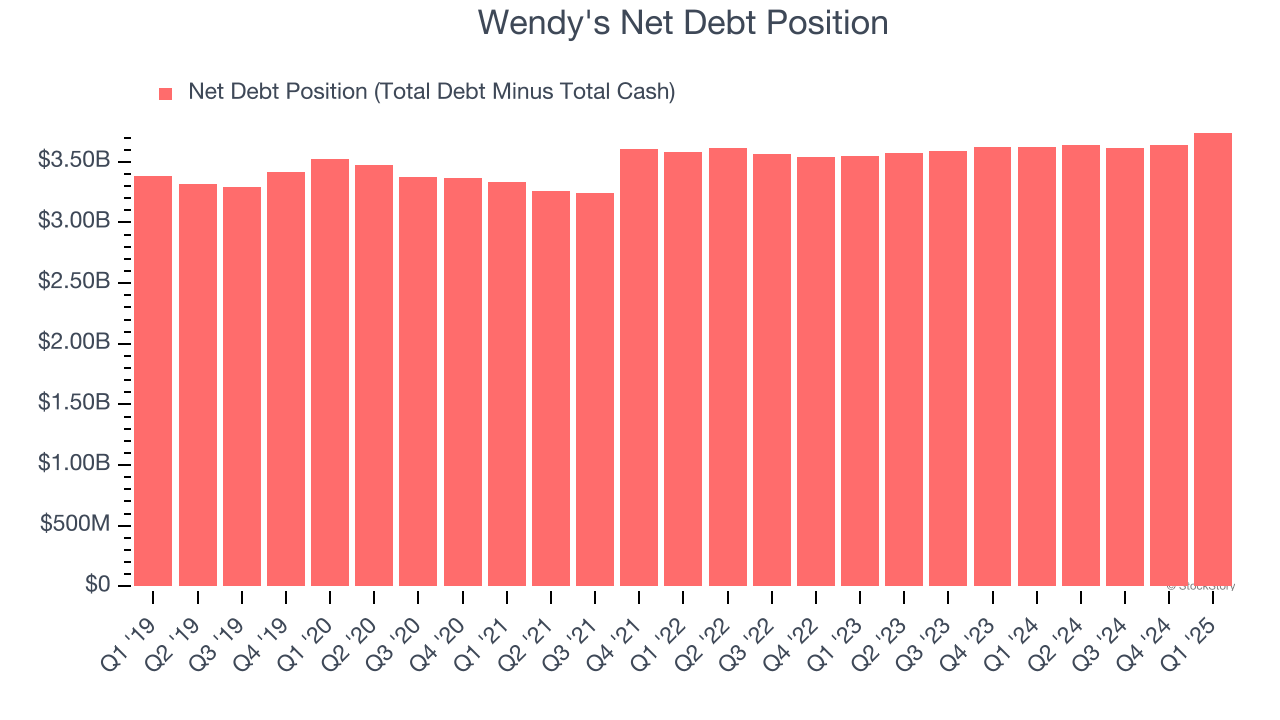
Wendy's has gotten torched over the last six months - since November 2024, its stock price has dropped 34.1% to $12.12 per share. This was partly driven by its softer quarterly results and may have investors wondering how to approach the situation.
Is there a buying opportunity in Wendy's, or does it present a risk to your portfolio? Get the full breakdown from our expert analysts, it’s free.
Why Is Wendy's Not Exciting?
Despite the more favorable entry price, we're cautious about Wendy's. Here are three reasons why there are better opportunities than WEN and a stock we'd rather own.
1. Same-Store Sales Falling Behind Peers
Same-store sales is a key performance indicator used to measure organic growth at restaurants open for at least a year.
Wendy’s demand within its existing dining locations has been relatively stable over the last two years but was below most restaurant chains. On average, the company’s same-store sales have grown by 1.7% per year.

2. Projected Revenue Growth Shows Limited Upside
Forecasted revenues by Wall Street analysts signal a company’s potential. Predictions may not always be accurate, but accelerating growth typically boosts valuation multiples and stock prices while slowing growth does the opposite.
Over the next 12 months, sell-side analysts expect Wendy’s revenue to stall, a deceleration versus its 5.5% annualized growth for the past six years. This projection is underwhelming and suggests its menu offerings will face some demand challenges.
3. High Debt Levels Increase Risk
Debt is a tool that can boost company returns but presents risks if used irresponsibly. As long-term investors, we aim to avoid companies taking excessive advantage of this instrument because it could lead to insolvency.
Wendy’s $4.08 billion of debt exceeds the $335.3 million of cash on its balance sheet. Furthermore, its 7× net-debt-to-EBITDA ratio (based on its EBITDA of $540.3 million over the last 12 months) shows the company is overleveraged.

At this level of debt, incremental borrowing becomes increasingly expensive and credit agencies could downgrade the company’s rating if profitability falls. Wendy's could also be backed into a corner if the market turns unexpectedly – a situation we seek to avoid as investors in high-quality companies.
We hope Wendy's can improve its balance sheet and remain cautious until it increases its profitability or pays down its debt.
Final Judgment
Wendy's isn’t a terrible business, but it doesn’t pass our quality test. Following the recent decline, the stock trades at 11.8× forward P/E (or $12.12 per share). While this valuation is reasonable, we don’t really see a big opportunity at the moment. We're fairly confident there are better stocks to buy right now. We’d suggest looking at a fast-growing restaurant franchise with an A+ ranch dressing sauce.
Stocks We Would Buy Instead of Wendy's
The market surged in 2024 and reached record highs after Donald Trump’s presidential victory in November, but questions about new economic policies are adding much uncertainty for 2025.
While the crowd speculates what might happen next, we’re homing in on the companies that can succeed regardless of the political or macroeconomic environment. Put yourself in the driver’s seat and build a durable portfolio by checking out our Top 9 Market-Beating Stocks. This is a curated list of our High Quality stocks that have generated a market-beating return of 176% over the last five years.
Stocks that made our list in 2020 include now familiar names such as Nvidia (+1,545% between March 2020 and March 2025) as well as under-the-radar businesses like the once-small-cap company Comfort Systems (+782% five-year return). Find your next big winner with StockStory today.





